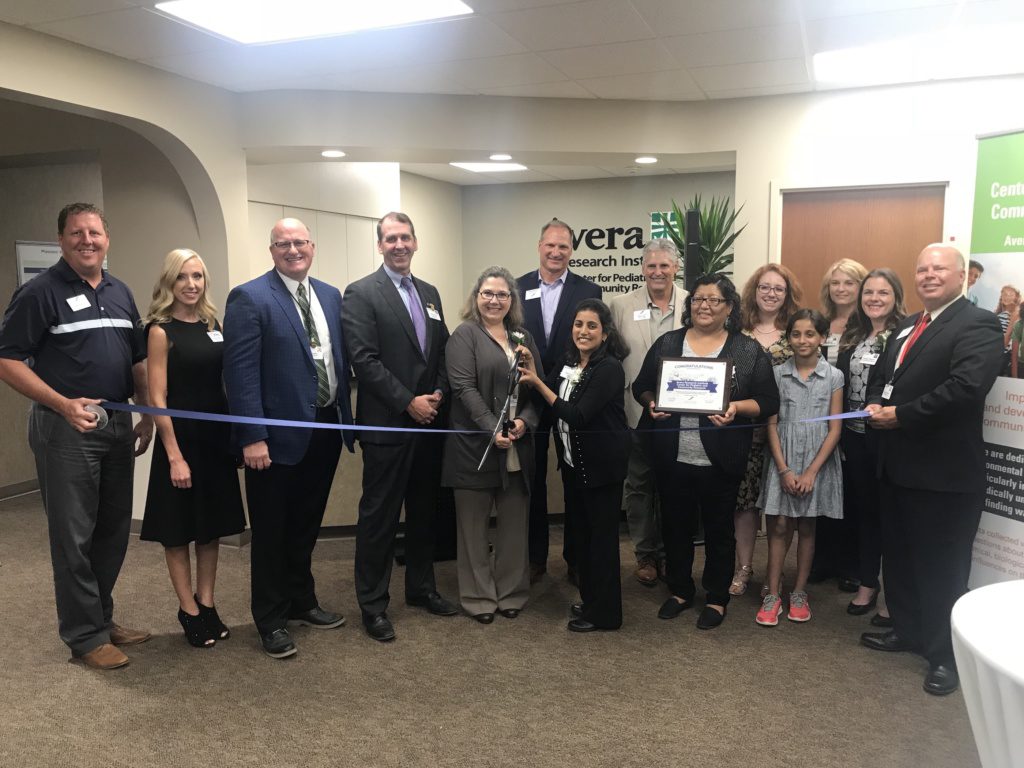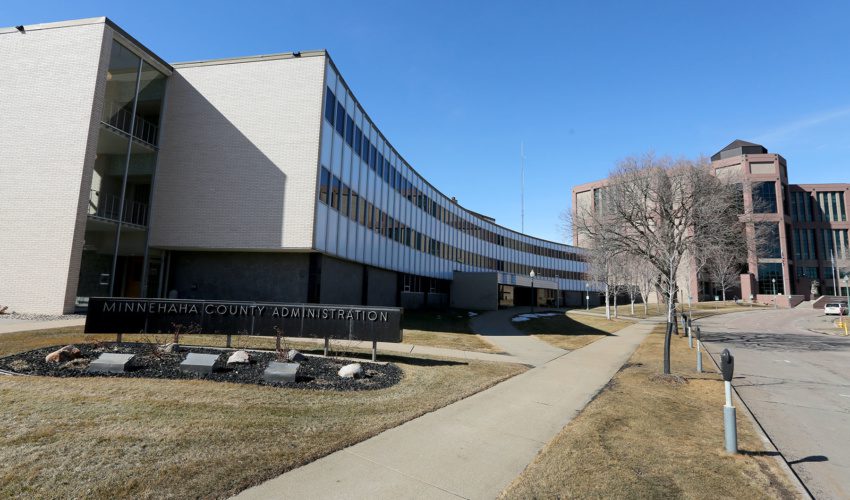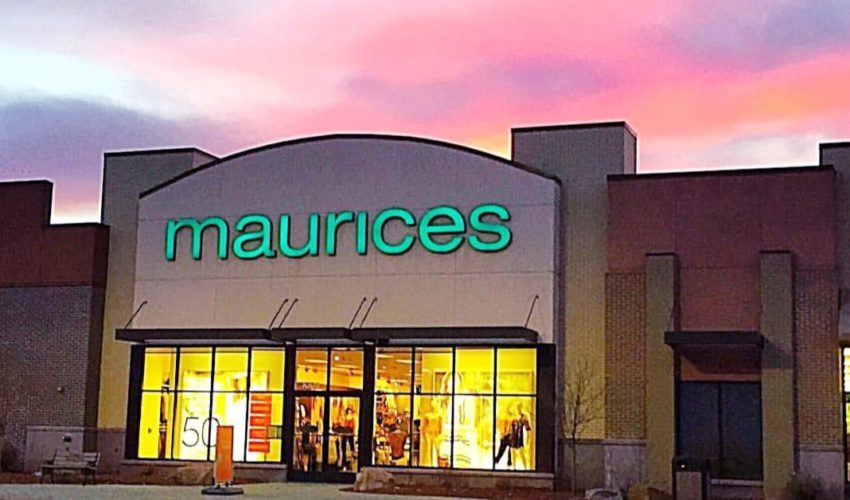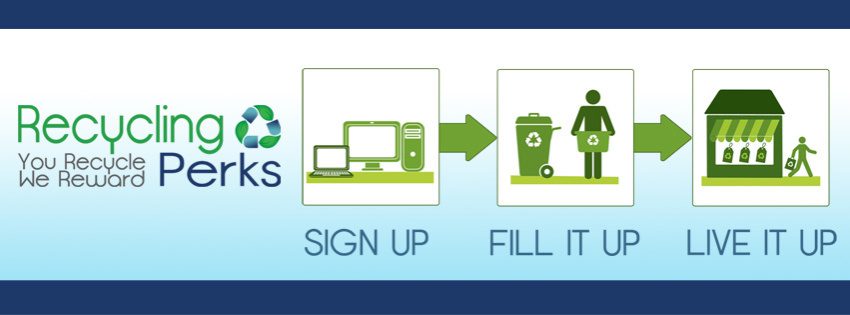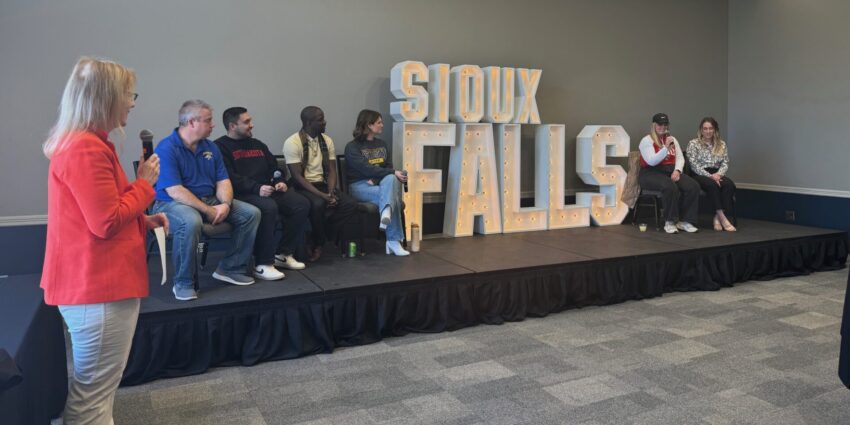Her team landed South Dakota’s largest health research grant. Here’s the work that’s moving forward
Aug. 30, 2018
This paid piece is sponsored by South Dakota Biotech.
It has been a busy six months for Amy Elliott, chief clinical research officer at the Avera Research Institute Center for Pediatric & Community Research.
Established early this year and located at 6001 S. Sharon Ave., the center has grown from 16 to 21 team members as it seeks to gain insight into how environmental factors affect child health and development, particularly in historically high-risk or medically underserved populations.
Elliott and her team recently landed the largest health research award in South Dakota – $17.1 million over five years from the National Institutes of Health – to help build on the work that has defined her career.
Her areas of scholarly interest include health disparities, population health, fetal alcohol spectrum, fetal and infant mortality, early childhood development and maternal-child health. Along with Sioux Falls, the team has locations in Rapid City and Pine Ridge.
The work complements and will be an extension of research already taking place throughout the Avera Research Institute, including the study of human development and the impact of genetics and environmental factors on disease and other health conditions. It also is related closely to existing grant projects aimed toward improving health disparities among American Indians, as well as the population health initiatives at Avera.
We talked with Elliott to learn more about the important work her team is doing statewide and beyond.
What attracted you to this field of research?
Science has a lot of tools to answer questions, and we try to guide those tools in specific ways. We want to answer questions that are important in our region. This means the topic of study is important to communities and to health care providers and typically addresses an area of concern. This way we can use the tools of science to answer those important questions and make a high impact in improving health. I’ve always been a science nerd. And I really like to help people. This line of research has really allowed us to do all those things simultaneously.
Tell us about your research team. Where are they from, and how do they like being in Sioux Falls?
We have 21 people, and they come from all different backgrounds. We find having different personal and educational backgrounds complement one another because a lot of health care issues are very complex. While we have team members from all over the globe, quite a few have some ties to the region. We also have individuals who interned with us at some point in their training and some who are living in Sioux Falls for the first time. I’m from Sioux Falls, so I’m a bit biased on the benefits of calling Sioux Falls home. I think people new to here are really surprised by the quality and types of research we are doing right here in the Midwest. We are conducting cutting-edge research, and it’s highly regarded and highly funded from places like the NIH. Our team also immediately notices Avera’s commitment to what we’re doing in terms of how it adds to the mission of service, impact and stewardship.
Avera is one of only 31 nationwide cohorts chosen to participate in ECHO – a national research program launched and supported by the National Institutes of Health. The goal of this study is to improve child and adolescent health by looking at how a broad range of environmental influences – including sleep, nutrition, allergens and social relationships – affect children both prenatally and after birth. What’s the current status?
We are transitioning between our planning phase and full-scale implementation of the ECHO studies. This grant award will sustain the work we will do with pregnant moms and children up to 15 years of age. We will be reconnecting with over 2,500 families that participated in a previous study we conducted called the Safe Passage Study. We are also starting a new pregnancy cohort that will enroll approximately 2,200 women. All of the ECHO projects are looking at five health outcomes. These include asthma, neuro development – in particular autism and ADHD – effects of prematurity, obesity and positive health. Positive health is an interesting topic because it isn’t simply the absence of disease. Positive health can include sleep practices, behavior and overall life satisfaction, which are topics people typically don’t study with kids. ECHO also allows us to be part of a national platform involving the top pediatric scientists from across the country. We bring their expertise here as well as contribute to science at a national level. In studies like this, you need a lot of people, and ECHO will enroll 50,000 kids. These large numbers help us thoroughly investigate inherently complex relationships to answer important questions.
What does your latest grant announcement – $17.1 million over five years – mean to the work of the ECHO program?
This grant allows us to fully implement the ECHO protocol, which investigates all those outcomes with women who are newly pregnant up to kids age 15. We will be including over 4,400 kids that we will be following both in Sioux Falls and Rapid City over the next five years. These funds will support research personnel – approximately 30 people are needed for projects of this magnitude – as well as other costs associated with the study. Our mission is to improve children’s health for years to come. That’s our challenge and our commitment.
You also have offices in Pine Ridge and Rapid City. What sort of work occurs there?
The multiple clinical sites definitely make us unique, particularly in the Midwest. It is important when doing community-based research that you’re actually in the communities where you work. We have studies that occur at all three sites, which means the same protocol is happening in very different locations. Sometimes we have the same study protocol in all three places because it’s important to represent the entire region, and sometimes we have a study occurring at one location. Some of our tribal communities have the largest health needs in the nation, and they are interested in finding answers. We will tailor projects to best meet their local health needs. For example, we have one clinical trial that is testing an intervention to improve sleep environments for American Indian infants to reduce risk for sudden infant death syndrome, SIDS. In our work through the Safe Passage Study, we worked with a number of families and found the sleep environment played a major role. There have been many educational programs and resource-giving campaigns, but we haven’t been able to make a big impact on a lot of those sleep-related deaths. We created a curriculum in collaboration with a community advisory board to promote safe sleep environments that incorporates both traditional culture practices and recommendations for safe sleep environments.
We lease our office in Pine Ridge from Oglala Lakota College department of nursing, and we have many strong relationships with a variety of programs and health care providers West River. In Rapid City, we are in the same facility as Walking Forward, which is another Avera program that partners with Rapid City Regional. All our work is in partnership with clinics, hospitals, communities, both within our institution as well as partners outside Avera.
Where do you see the center going? What type of work do you anticipate going forward?
The majority of our work comes from conversations with clinics and communities. I see us becoming increasingly integrated within the health system and region as we continue looking for unique opportunities to improve health in our region. I also see this integration including active dissemination of research findings. Avera is poised to put those results into action to improve health. We are really excited to have this flow of communication back and forth. We are in a very exciting time and see many opportunities to grow and increase our impact going forward.
To learn more about the Avera Research Institute Center for Pediatric & Community Research, click here.


